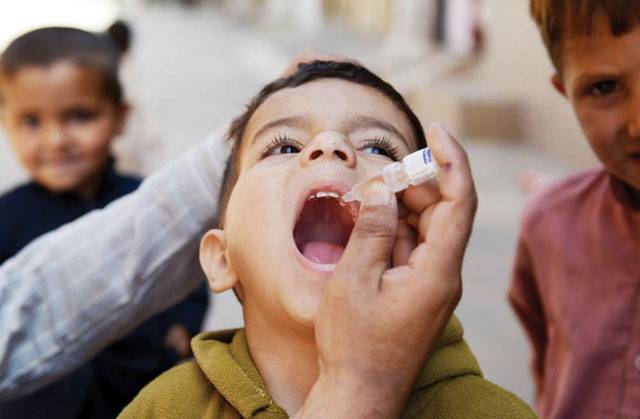Islamabad - The Independent Monitoring Board of the Global Polio Eradication Initiative, convening this week in London, will review the remaining challenges and progress made on the eradication of poliovirus from the country, an official said on Tuesday.
Though the Independent Monitoring Board (IMB) will review the global progress of polio eradication, but the particular focus will remain on the endemic countries including Pakistan, Afghanistan and Nigeria.
The Federal Minister for National Health Services, Regulations and Coordination Saira Afzal Tarar is leading Pakistan’s delegation at the meeting and joined by the Senator Ayesha Raza Farooq, Prime Minister’s Focal Person for Polio Eradication, and Dr Rana Muhammad Safdar, National Coordinator of the National Emergency Operation Centre for Polio Eradication.
The IMB is mandated by the World Health Assembly to provide independent assessments of the progress made and report to countries with an ultimate aim of guiding eradication efforts. In its 15th session held in May 2017, the IMB recognised the progress made in Pakistan’s polio situation to date and called for more innovative approaches to end polio in the country once and for all. With five cases so far this year, this is the best ever case count Pakistan has recorded. Federal Minister for National Health Services, Saira Afzal Tarar said, “The best way to honour the commitment of our frontline health workers is to ensure that we finish the job and build a better future for all of our children and future generations.”
Building on the last IMB recommendations, Pakistan’s polio eradication developed its National Emergency Action Plan 2017-2018 with innovative strategies with the aim of stopping transmission during this next season and has focused diligently on implementing these strategies, added the minister.
The IMB will be concluding deliberations in London on Wednesday. The Government of Pakistan welcomed the discussions with the aim of achieving polio eradication goals and achieving a significant global public health landmark.
Meanwhile, Drug Regularity Authority Pakistan (DRAP) introduced 2D bar-coding of drugs to eradicate counterfeit and spurious drugs, said the official.
The statement said that for the protection of public from spurious and counterfeit drugs through a technical system is closed.
Pharmaceutical manufacturers are required to emboss 2D Barcode data matrix on their registered drug products from all batches manufactured by December 15, 2017.
By virtue of Notification No 470(I)/2017 issued by the DRAP on 15th June 2017, it is mandatory for all Market Authorization Holders of Pharmaceutical drugs will emboss a 2D barcode on their products.
Barcodes will be according to the standards of GS-I embedding Product identification code (GTIN), Expiry Date, Batch Number and Price on the secondary packaging of drugs.
The companies will maintain a database of bar-coding information of their products and will also submit it to DRAP. DRAP has developed an online portal named as “Drug Regulatory Information System (DRIS)”. Pharma companies and market authorisation holders of products will access this portal through a validated account; without any subscription fee.
In her statement, the Minister Saira Afzal Tarar expressed satisfaction that major initiatives taken by health ministry is now being implemented and will give a major boost to eradicating spurious and counterfeit drugs.
In this regard, DRAP IT professional arranged training sessions for technical personnel of Pharma manufacturers in all provincial headquarters. The first training session was held in Karachi on 30th October attended by the representative from national and multinational companies and their associations including Pharma Bureau and Pakistan Pharmaceutical Manufacturers Association.






